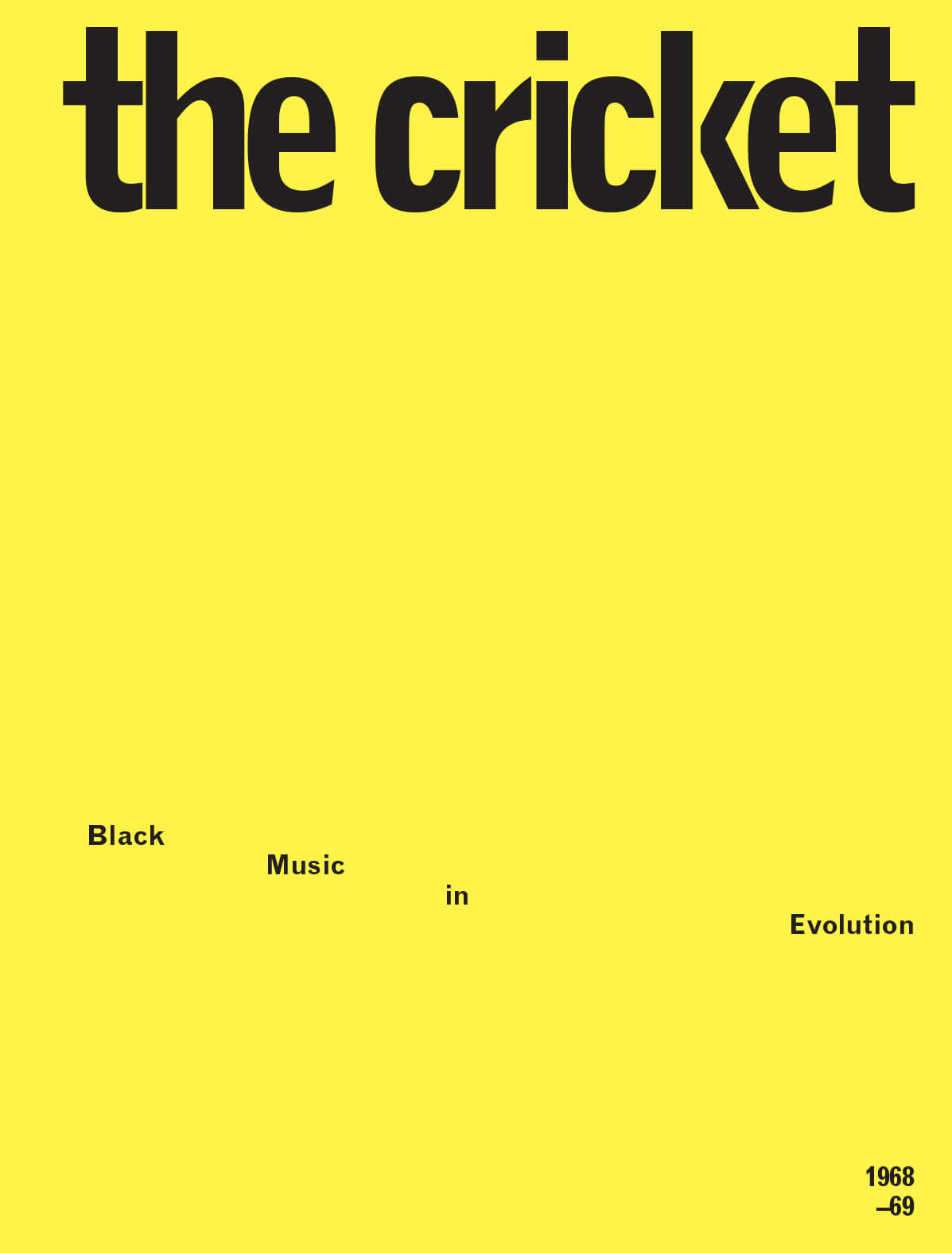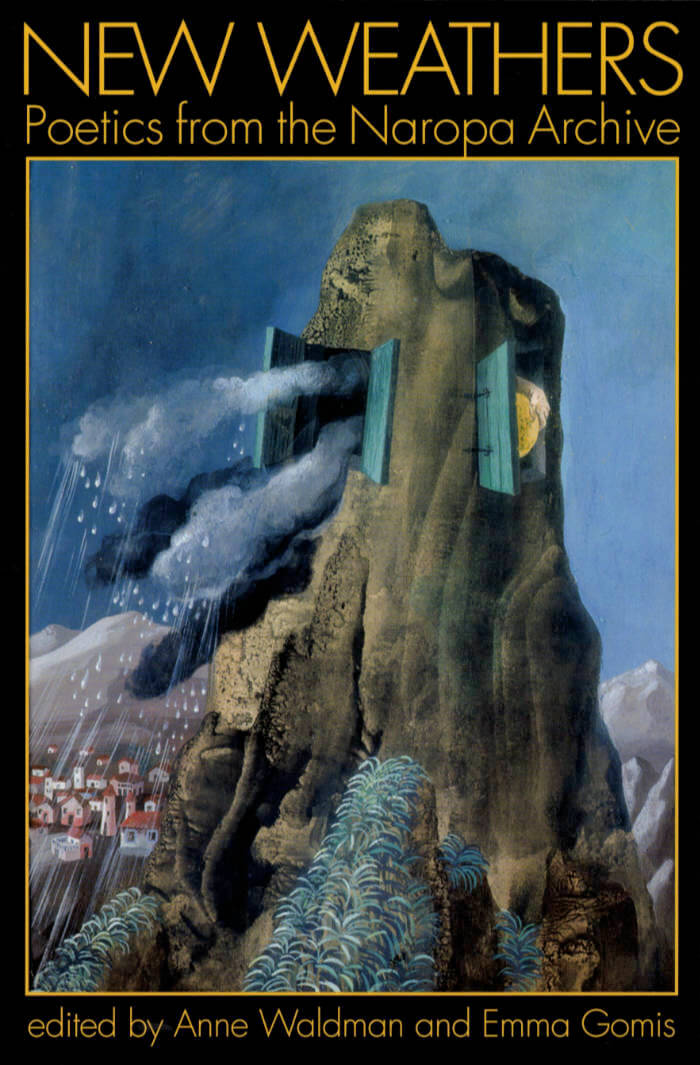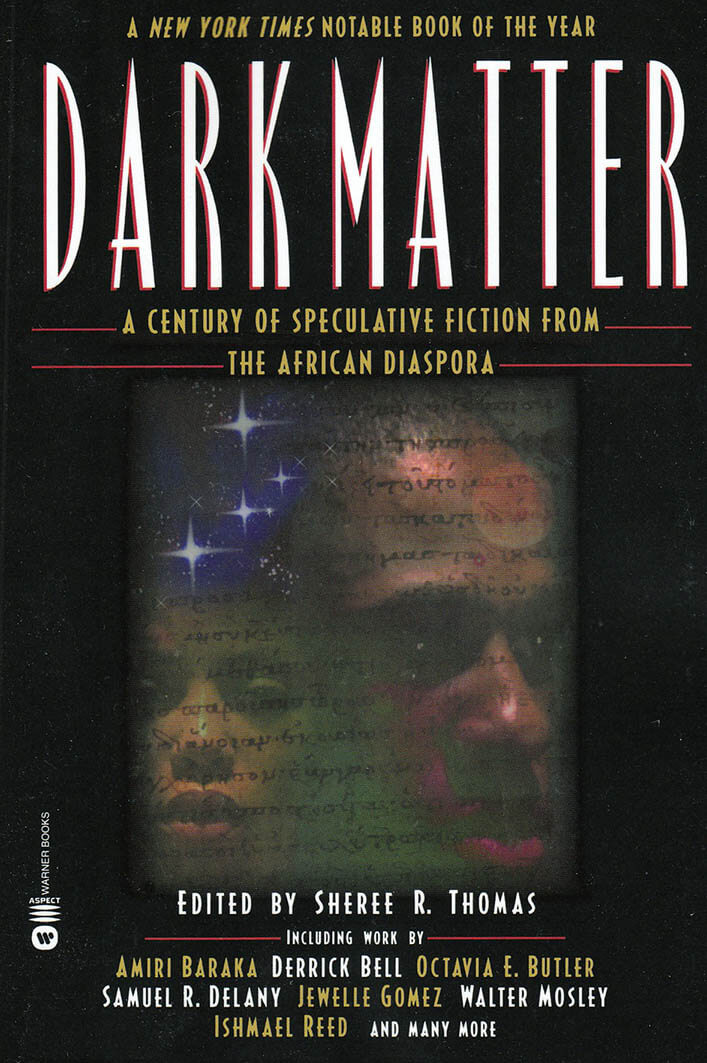Amiri Baraka
Amiri Baraka

The Cricket – Black Music in Evolution, 1968-69
Larry Neal, A. B. Spellman and 1 more
Complete facsimile of The Cricket, an important but underknown music magazine edited by poets and writers Amiri Baraka, A. B. Spellman, and Larry Neal in 1968–69—a rare document of the Black Arts Movement.
Published in the late 1960s by Baraka's New Jersey-based JIHAD productions around the time of the Newark Riots, The Cricket: Black Evolution in Music was an experimental music magazine running poetry, short plays, and gossip alongside concert and record reviews and essays on music and politics. Over four mimeographed issues, The Cricket laid out an anti-commercial ideology and took aim at the conservative jazz press, providing a space for critics, poets, and journalists (including Stanley Crouch, Haki Madhubuti, Ishmael Reed, Sonia Sanchez, and Keorapetse Kgositsile) and musicians (including Cecil Taylor, Milford Graves, Sun Ra, Mtume, Albert Ayler, the Black Unity Trio) to devise new styles of music writing. The publication emerged from the heart of a political movement—"a proto-ideology, akin to but younger than the Garveyite movement and the separatism of Elijah Mohammed," as Spellman write's in the books preface—and aimed to reunite advanced art with its community, "to provide Black Music with a powerful historical and critical tool," and to enable avant-garde Black musicians and writers "to finally make a way for themselves."
This publication gathers all issues of the magazine and a new substantial introduction by artist and writer Kodwo Eshun.
Preface by A. B. Spellman.
Introduction by David Grundy.
Texts by Billy Abernathy, Albert Ayler, LeRoi Jones / Imamu Ameer Baraka, Duncan Barber, Black Unity Trio, Hilary Broadus, Ben Caldwell, Stanley Crouch, Dan Dawson, Joe Goncalves, Milford Graves, Ronnie Gross, Clyde Halisi, E. Hill, Haasan Oqwiendha Fum al Hut, Norman Jordan, Larry A. Miller / Mwanafunzi Katibu, Willie Kgositsile, Don L. Lee, Mtume, Gaston Neal, Larry Neal, Ibn Pori, Sun Ra, Ishmael Reed, Roger Riggins, Sonia Sanchez, A. B. Spellman, James T. Stewart, Donald Stone, Askia Muhammad Touré.
And more

A Book Knot Book
A Book Knot Book is a 208 pages long performance, the first from the research and publishing initiative Body Text. In this study of language in action systems of meaning-making crash, sparkle and swoon. In a playful voice over A Book Knot Book self-reflects on the materialities and choreographies of publishing, reading and writing. With guest stars in fragments; Monique Wittig, Yvonne Rainer, Cristina Rivera Garza, Amiri Baraka, Will Rawls, David Abram, Thich Nhat Hanh and more.
Edited and designed by Sara Kaaman. Published with the support of Stockholm University of the Arts.

Groove, Bang and Jive Around
New edition of Steve Cannon's riotous 1969/71 erotic novel Groove, Bang and Jive Around, "an underground classic of such legendary stature that New York's black cognoscenti have transmogrified the work into urban myth," with a foreword from Darius James and an afterword by poet Tracie Morris.
Despite decades of notoriety as one of the "filthiest books in the world," Steve Cannon's first and only novel, Groove, Bang and Jive Around, has hardly been read since first being published by the Paris- based Ophelia Press in 1969.
Due to its scarcity, the New York Press deemed it "an underground classic of such legendary stature that New York's black cognoscenti have transmogrified the work into urban myth." This debut, revised for release by Olympia Press in 1971, cemented Cannon's place as a stalwart of the East Village and key figure in New York's black avant-garde—inspiring a generation to break with staid literary modernism, according to Cannon's friend and collaborator Ishmael Reed, for whom its release "signaled a resurfacing of the irreverent, underground trickster tradition of black orature." Seeped psychedelia and hoodoo, this erotic farce follows Anette, a fourteenyear- old runaway, from the outhouse of a New Orleans juke joint to the land of Oo-bla-dee, a realm of bacchanalian self-determination founded by Dizzy Gillespie. Inspired equally by Chester Himes and Women's Liberation, the author claims—as Ophelia put it, Groove, Bang and Jive Around is an absolute necessity "for everyone who wants to know where and how the action takes place in Sex and Soul."
"If there's a dirty prayer, this is it. Groove, Bang and Jive Around will invariably piss people off, that's the plan and its delight. It's gorgeously uneven, like a country road, it's squawking & sonorous like great live music, indeed, it is that. Groove, Bang is poetry and a novel out loud, and Steve Cannon, who wrote it was a huge heckler and a funny man and I wish I could thank him for this wonderful disturbing, deeply wrong (hot) and light-footed book that somehow fell out of reading history he has given us and now it has fallen back in."—Eileen Myles, author of a Working Life
Steve Cannon (1935-2019) was a writer who shaped the literary history of Manhattan's Lower East Side. He was the founder and executive director of A Gathering of the Tribes, an East Village nonprofit and exhibition space, and the publisher of a magazine of the same name. Tribes, which operated from Cannon's Alphabet City townhouse, functioned as a salon where artists and musicians such as David Hammons, Sun Ra, and Butch Morris could reliably be found among a cohort of younger poets emerging from the Nuyorican Poets Café scene. Born to a preacher in New Orleans, Cannon relocated to New York from England in 1962, where, alongside such luminaries as Amiri Baraka and Calvin C. Hernton, Cannon joined the Umbra Workshop, a cornerstone of the 1960s African American avant-garde poetry and publishing. In 1973 he, Ishmael Reed, and Joe Johnson cofounded the influential literary and audio/visual imprint Reed, Cannon, and Johnson. As a poet, playwright, and professor, Cannon mentored a generation of writers including Eileen Myles and Paul Beatty, and taught across the City University of New York system for more than three decades.

New Weathers: Poetics from the Naropa Archive: Lectures from the Naropa Archive
A collection of lectures transcribed from the audio archives of Naropa University's Summer Writing Program that represent a continuing lineage of experimental literary movements.
New Weathers asks us to consider how poetics might embolden deeper engagements with the world. Collected from the alternative education zone founded by Anne Waldman and Allen Ginsberg with the aim of opening up discourse and fostering political engagement, these texts invoke issues of gender and race-based injustice, the global climate crisis, and our possible extinction. They weave through our poetic community, the conversations we are having, the issues we are facing—our "new weathers" to posit strategies of resistance.
List of Contributors: Paula Gunn Allen, Amiri Baraka, Dan Beachy-Quick, Sherwin Bitsui, Robin Blaser, William S. Burroughs, Julie Carr, J'Lyn Chapman, Jos Charles, Jack Collom, Samuel R. Delany, kari edwards, Tongo Eisen-Martin, Tonya M. Foster, Forrest Gander, Alan Gilbert, Allen Ginsberg, Renee Gladman, Robert Glück, Lyn Hejinian, Lisa Jarnot, Kevin Killian, Thurston Moore, Fred Moten, Eileen Myles, Hoa Nguyen, Alice Notley, Akilah Oliver, M. NourbeSe Philip, Margaret Randall, Roger Reeves, Ariana Reines, Lisa Robertson, Ed Sanders, Andrew Schelling, Cedar Sigo, Eleni Sikelianos, Harry Smith, Edwin Torres, Cecilia Vicuña, Asiya Wadud, Peter Warshall, Eliot Weinberger, Peter Lamborn Wilson, and Ronaldo V. Wilson.

Pieces of a Song: selected poems
Feminist Beat poet Diane di Prima was born in Brooklyn, New York. She attended Swarthmore College for two years before moving to Greenwich Village in Manhattan and becoming a writer in the emerging Beat movement. There, she developed friendships with poets Amiri Baraka, Allen Ginsberg, Jack Kerouac, Frank O'Hara and Audre Lorde. After joining Timothy Leary's intentional community in upstate New York, she moved to San Francisco in 1968. One of her collections of poetry, The Poetry Deal, is also published by City Lights Publishers. Di Prima was named Poet Laureate of San Francisco in 2009. She has been awarded the National Poetry Association's Lifetime Service Award and the Fred Cody Award for Lifetime Achievement and has also received grants from the National Endowment for the Arts, the Committee on Poetry, the Lapis Foundation and the Institute for Aesthetic Development. St. Lawrence University granted her an honorary doctorate.

Pasts, Futures, and Aftermaths: Revisiting the Black Dada Reader
The sequel to Pendleton's acclaimed Black Dada Reader, compiling an anti-canon of radical experimentation and thought.
In 2011, artist Adam Pendleton (born 1984) assembled Black Dada Reader, a compendium of texts, documents and positions that elucidated a practice and ethos of Black Dada. Resembling a school course reader, the book was a spiral-bound series of photocopies and collages, originally intended only for personal reference, and eventually distributed informally to friends and colleagues. The contents - an unlikely mix of Hugo Ball, W.E.B. Du Bois, Adrian Piper, Gertrude Stein, Sun Ra, Stokely Carmichael, Gilles Deleuze -formed a kind of experimental canon, realized through what Pendleton calls radical juxtaposition. In 2017, Koenig Books published the Reader in a hardcover edition, with newly commissioned essays and additional writings by the artist. A decade later, Pendleton has composed another reader, building upon the constellation of writers, artists, filmmakers, philosophers and critics that emerged in the first volume.
Source texts by Sara Ahmed, Mikhail Bakhtin, Toni Cade Bambara, Amiri Baraka, Augusto de Campos, Hardoldo de Campos, and Décio Pignatari, Angela Davis, Gilles Deleuze, Julius Eastman, Adrienne Edwards, Clarice Lispector, Achille Mbembe, Philippe-Alain Michaud, Charles Mingus, Piet Mondrian, Leslie Scalapino, Leonard Schwartz and Michael Hardt, Juliana Spahr, Cecil Taylor and Malcolm X.

Cruiser L'Utopie
First French translation of José Esteban Muñoz's field defining work—an intellectual inspiration for a generation of LGBTQ scholars.
Cruiser l'utopie describes a movement, a drifting advance between theory, philosophy, art criticism and personal narrative. The works cited, narrated, are mixed with family or individual narrative and more academic considerations. This practice of queer theory and aesthetics is part of a new interpretation of hope as perceived by philosopher Ernst Bloch, articulated with black radical thought and the poetic research of authors such as Fred Moten and Eileen Myles.
Muñoz focuses here on the period of the Stonewall revolts (New York, 1969) and analyzes, for example, the works of Frank O'Hara, King Jone/Amiri Baraka, Andy Warhol, Kevin Avance, Samuel R. Delany, Fred Herko, Jill Johnston, Ray Johnson. Queer theory as a study has a new way of researching and writing, a form of hybridity between philosophy and cultural studies. The critique is, as if by anticipation, contained in the counter-normative artistic practice and daily life whose narratives, both subjective and historical, hint at a queer future, a place of transformation and liberation.
The text, translated from English by Alice Wambergue, is accompanied by a preface by Elisabeth Lebovici and a poem by Fred Moten.
José Esteban Muñoz (1967 - 2013) is a queer scholar and art theorist. Author of The Sense of Brown (published posthumously in 2020), Cruising Utopia, the Aftermath and Elsewhere of Queer Advent (2009), and Disidentifications: Queers of Color and the Performance of Politics (1999), he edited the collective works Pop Out: Queer Warhol (1996) and Everynight Life: Culture and Dance in Latin/o America (1997). Muñoz has long taught in the Department of Performance Studies at New York University's Tisch School of the Arts and edited the Sexual Cultures series at New University Press, where he has published works such as Jack Halberstam and Samuel Delany.

Black Art Notes
A prescient document of art-industry and museum critique from Black artists and writers.
A collection of essays edited by artist and organizer Tom Lloyd and first published in 1971, Black Art Notes was a critical response to the Contemporary Black Artists in America exhibition at the Whitney Museum, but grew into a "concrete affirmation of Black Art philosophy as interpreted by eight Black artists," as Lloyd notes in the introduction.
This facsimile edition features writings by Lloyd, Amiri Baraka, Melvin Dixon, Jeff Donaldson, Ray Elkins, Babatunde Folayemi, and Francis & Val Gray Ward. These artists position the Black Arts Movement outside of white, Western frameworks and articulate the movement as one created by and existing for Black people. Their essays outline the racism of the art world, condemning the attempts of museums and other white cultural institutions to tokenize, whitewash and neutralize Black art, and offer solutions through self-determination and immediate political reform. While the publication was created to respond to a particular moment, the systemic problems that it addresses remain pervasive, making these critiques both timely and urgent.

Dark Matter: A Century of Speculative Fiction from the African Diaspora
A Century of Speculative Fiction from the African Diaspora.
An important new anthology, the first of its kind, Dark Matter explores a century of fantastic fiction by preeminent and emerging luminaries of the African Disapora. A richly vibrant collection of stories and essays, it displays the brilliance of writers ranging from early pioneers such as W.E.B Du Bois, to famed authors including Samuel R. Delany and Octavia E. Butler, to such luminaries of the literary tradition as playwright-critic Amiri Baraka and satirist Ishmael Reed, as well as a spectrum of acclaimed new writers.
Astonishing, compelling, erotic, and profound stories of worlds within and beyond abound in Dark Matter. From the bittersweet legacies of Africa to utterly phantasmagoric future civilizations, here is a compliation of stories that transmute our human experience.
Published 2001.